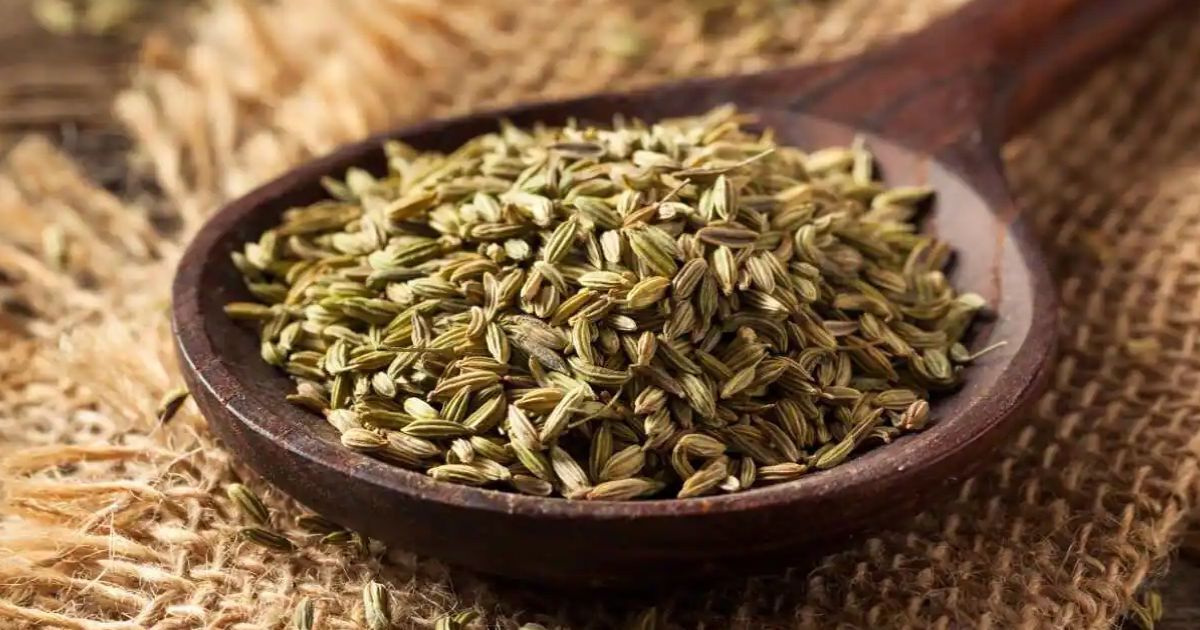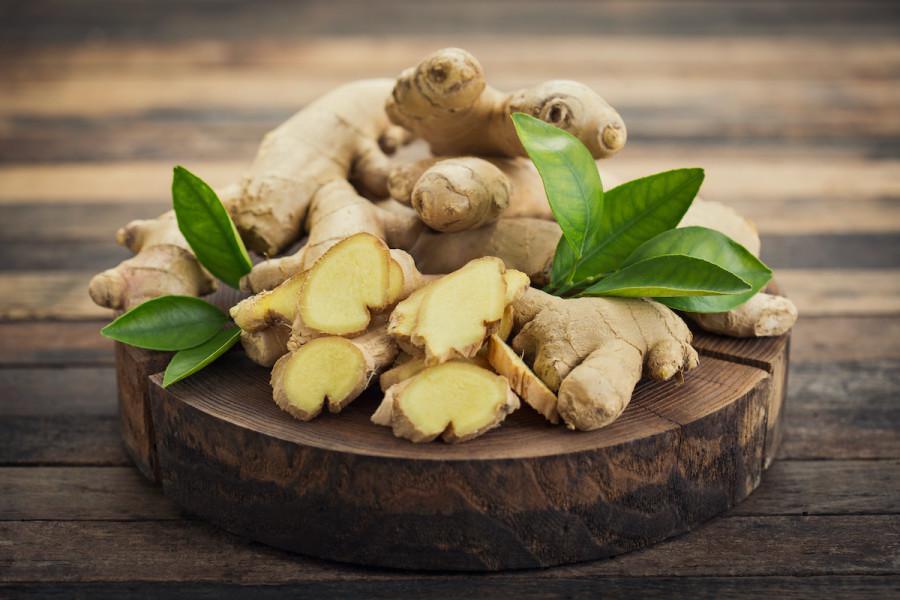Best Healthy Weight Loss
🛒 Buy Here: https://bit.ly/49J02E6
Introduction
Bloating is an uncomfortable and often embarrassing issue that many people experience. It can cause your stomach to feel swollen, tight, and full, making it hard to go about your day with ease. While there are many over-the-counter remedies available, some prefer to seek out natural solutions. One such remedy that has been used for centuries is fennel seeds. But how effective are they really? Let’s dive into the world of fennel seeds and explore why they might just be the natural solution to your bloating problems.
What are Fennel Seeds?
Fennel seeds come from the fennel plant, a hardy, perennial herb with yellow flowers and feathery leaves. Native to the Mediterranean region, fennel has been used for centuries in cooking and traditional medicine.
Nutritional Composition of Fennel Seeds
Fennel seeds are packed with nutrients, including dietary fiber, vitamins, minerals, and antioxidants. They are particularly rich in Vitamin C, calcium, magnesium, and iron. These tiny seeds are not only flavorful but also a powerhouse of health benefits.
Traditional Uses in Various Cultures
Fennel seeds have been used in various cultures for their medicinal properties. In India, they are commonly chewed after meals to aid digestion and freshen breath. In the Mediterranean, fennel seeds have been used in cooking and as a remedy for digestive issues for centuries.
Understanding Bloating
Bloating occurs when your abdomen feels full and tight, often due to excess gas in the digestive tract. It can be caused by a variety of factors, including diet, lifestyle, and certain medical conditions.
Causes of Bloating
Common causes of bloating include overeating, eating too quickly, consuming carbonated drinks, and certain food intolerances. Stress, lack of exercise, and hormonal changes can also contribute to bloating.
Common Symptoms Associated with Bloating
Symptoms of bloating can include a swollen stomach, discomfort, pain, excessive gas, and a feeling of fullness. In some cases, bloating can also be accompanied by belching or nausea.
How Lifestyle Impacts Bloating
Your daily habits play a significant role in how often you experience bloating. Eating large meals, consuming foods that are difficult to digest, and leading a sedentary lifestyle can all increase the likelihood of bloating.
How Fennel Seeds Help Relieve Bloating
Fennel seeds have long been touted for their ability to ease digestive discomfort and reduce bloating. But what makes them so effective?
The Science Behind Fennel Seeds and Digestion
Fennel seeds contain compounds like anethole, fenchone, and estragole, which have anti-inflammatory and antispasmodic properties. These compounds help relax the muscles in the gastrointestinal tract, making it easier for gas to pass through the digestive system and reducing bloating.
Key Compounds in Fennel Seeds that Reduce Bloating
Anethole, the primary compound in fennel seeds, is particularly effective in preventing gas formation. It also helps stimulate the production of gastric enzymes, which aids in digestion and prevents the buildup of gas.
Relaxing Gastrointestinal Muscles
The antispasmodic properties of fennel seeds help to relax the muscles in the stomach and intestines, which can alleviate the discomfort associated with bloating. This relaxation allows for smoother digestion and less gas buildup.
Additional Benefits of Fennel Seeds
While fennel seeds are best known for their digestive benefits, they offer a range of other health advantages.
Improving Digestion Overall
Fennel seeds promote the production of digestive enzymes, which helps break down food more efficiently. This not only reduces bloating but also improves overall digestion and nutrient absorption.
Reducing Gas and Discomfort
The carminative properties of fennel seeds make them effective at reducing gas and the discomfort that comes with it. By easing the passage of gas through the intestines, fennel seeds can help prevent the painful buildup of gas that leads to bloating.
Boosting Appetite and Metabolism
Fennel seeds have been shown to increase appetite and boost metabolism, making them a great addition to your diet if you’re looking to improve your overall digestive health.
Antioxidant Properties of Fennel Seeds
What Antioxidants Do for Your Body
Antioxidants are compounds that protect your cells from damage caused by free radicals, which are unstable molecules that can lead to chronic diseases and aging.
How Fennel Seeds Provide Antioxidant Benefits
Fennel seeds are rich in flavonoids and phenolic compounds, both of which have strong antioxidant properties. These antioxidants help reduce inflammation in the digestive tract and protect against cellular damage.
Protecting the Digestive System with Antioxidants
The antioxidant properties of fennel seeds not only protect your cells but also support a healthy digestive system by reducing inflammation and promoting the repair of damaged tissues.
Fennel Seeds vs. Over-the-Counter Remedies
The Downsides of Conventional Bloating Remedies
While over-the-counter remedies can provide quick relief, they often come with side effects such as drowsiness, dry mouth, or dependency. Moreover, these remedies usually address the symptoms rather than the root cause of bloating.
Why Fennel Seeds Are a Natural Alternative
Fennel seeds offer a natural, side-effect-free alternative to conventional bloating remedies. They address the underlying causes of bloating, such as poor digestion and gas buildup, rather than just masking the symptoms.
How Fennel Seeds Complement Other Treatments
Fennel seeds can be used alongside other treatments, such as probiotics or dietary changes, to enhance digestive health and provide long-term relief from bloating.
How to Use Fennel Seeds for Bloating
Different Forms of Fennel Seeds (Whole, Ground, Tea)
Fennel seeds can be consumed in various forms, including whole seeds, ground seeds, or as a tea. Each form offers its own set of benefits, and the choice often depends on personal preference and the desired effect.
Recommended Daily Intake
To alleviate bloating, it’s generally recommended to consume about 1-2 teaspoons of fennel seeds daily. This can be done by chewing the seeds directly, making fennel tea, or adding ground fennel seeds to your meals.
Best Times to Consume Fennel Seeds
Fennel seeds can be consumed after meals to aid digestion or at any time of the day when you experience bloating. Drinking fennel tea after a heavy meal can be particularly effective in preventing bloating.
Potential Side Effects of Fennel Seeds
Allergic Reactions
Although rare, some individuals may experience allergic reactions to fennel seeds, such as skin rashes or difficulty breathing. If you suspect an allergy, discontinue use and consult a healthcare provider.
Overconsumption Risks
Like many natural remedies, fennel seeds should be consumed in moderation. Overconsumption can lead to side effects such as nausea or increased sun sensitivity.
Who Should Avoid Fennel Seeds?
Pregnant women, individuals with certain medical conditions, or those taking specific medications should consult with a healthcare provider before incorporating fennel seeds into their diet.
Other Natural Remedies for Bloating
The Importance of Hydration
Drinking plenty of water is crucial for preventing bloating. Staying hydrated helps your body process food and pass gas more efficiently.
Incorporating Ginger into Your Diet
Ginger is another natural remedy known for its digestive benefits. It helps reduce inflammation in the gut and promotes the movement of food through the digestive tract.
Benefits of Probiotics for Digestion
Probiotics, found in yogurt and supplements, promote a healthy balance of gut bacteria, which is essential for preventing bloating and other digestive issues.
Fennel Seeds Myths Debunked
Myth: Fennel Seeds Work Instantly
While fennel seeds can provide relief relatively quickly, they are not an instant fix. Consistent use over time is key to reaping their full benefits.
Myth: All Fennel Seeds Are the Same
The quality of fennel seeds can vary. Organic, high-quality fennel seeds are more potent and effective than lower-grade varieties.
Myth: Fennel Seeds Are Just for Digestion
While fennel seeds are most commonly used for digestive issues, they also offer a range of other health benefits, including antioxidant protection and appetite stimulation.
Real-Life Testimonials
Success Stories from Those Who Use Fennel Seeds
Many people who suffer from bloating have found relief through fennel seeds. These success stories highlight the effectiveness of this natural remedy.
Expert Opinions on Fennel Seeds and Bloating
Health experts agree that while fennel seeds are not a cure-all, they can be a valuable tool in managing bloating, particularly when used as part of a balanced diet.
Conclusion
Fennel seeds are a powerful natural remedy for bloating, offering a range of benefits from reducing gas and discomfort to improving overall digestion. While they may not provide instant relief, their consistent use can help you manage and prevent bloating in the long run. So why not give fennel seeds a try? Your digestive system will thank you!
FAQs
1. Can fennel seeds be consumed daily?
Yes, fennel seeds can be consumed daily in moderation to support digestion and prevent bloating.
2. How soon will I feel relief after taking fennel seeds?
Relief can vary, but many people report feeling better within 30 minutes to an hour after consuming fennel seeds.
3. Are there any alternatives to fennel seeds for bloating?
Yes, other natural remedies include ginger, peppermint tea, and probiotics.
4. Can fennel seeds help with other digestive issues?
Yes, fennel seeds can also help with indigestion, gas, and constipation.
5. Are there any side effects of long-term use of fennel seeds?
Long-term use is generally safe, but overconsumption should be avoided to prevent potential side effects like nausea.
Best Healthy Weight Loss
🛒 Buy Here: https://bit.ly/49J02E6
Full Article Here: askchords.com
Other Article Here: askkenblogs.com











